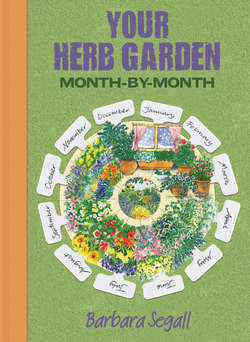Читать книгу Your Herb Garden - Barbara Segall - Страница 10
На сайте Литреса книга снята с продажи.
NOTE
ОглавлениеBefore making a formal plan, ask yourself the following questions about your garden. Is the soil a heavy clay? Is it a light, infertile sandy soil? Is the garden sheltered from wind? Is it shady or sunny?
Herbs are adaptable plants that will grow in most conditions, extremes of cold, drought and moisture excluded. Most originate from hot climates and thrive in well-drained, infertile sandy soils. In the wild, herbs are not constantly harvested, so fertile soil is not necessary, and the aromatic oils produced in their leaves and stems help prevent excessive loss of water.
In the garden, you may have to offer the plants a little extra help to ensure they perform well. In cold areas, winter shelter from chilly, drying winds is necessary to prevent evergreens such as bay turning brown. In summer, the plants will benefit from the shelter and shade provided by herb hedges and wooden fencing.
If the soil is infertile, work in well-rotted, home-made compost or a bagged, proprietary compost in autumn or spring. The added compost gives the plants extra nutrients so they keep producing new shoots throughout the growing season. The addition of compost will also help water retention in dry soils. Heavy clay soils need similar additions of compost to open them up and prevent waterlogging. Clay soils also need gravel or coarse material such as sand worked in to make them free draining.
